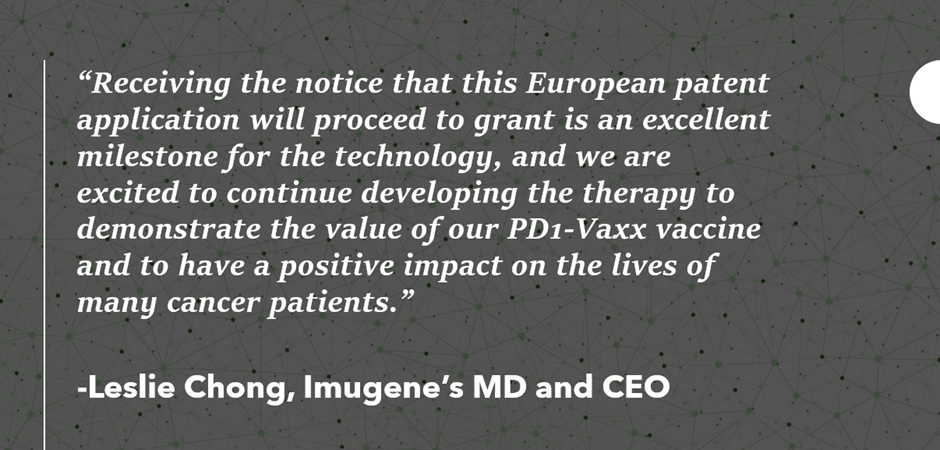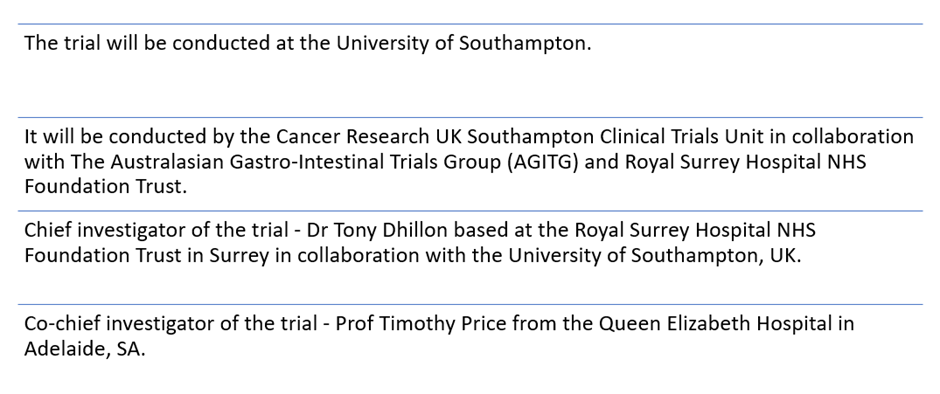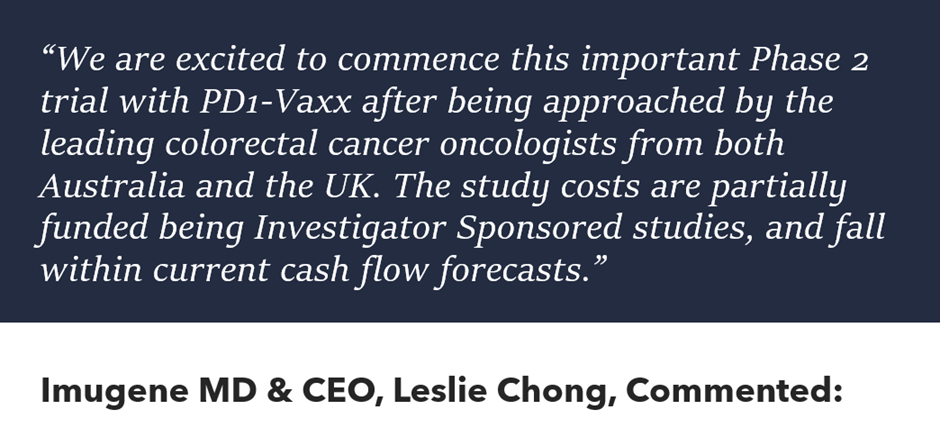Highlights
- Imugene’s PD1-Vaxx is expected to be granted a European patent soon.
- PD1-Vaxx Phase 2 colorectal cancer clinical trial is due to commence in the UK and Australia, in 2024.
Imugene Limited (ASX: IMU) is expecting to soon receive the European patent grant for its PD1-Vaxx cancer vaccine. A notification has been issued by the European Patent Office indicating the intent to grant a patent. The application is expected to proceed further in late 2023, after the finalisation of grant formalities.
The company also shared plans to kick off the PD1-Vaxx Phase 2 colorectal cancer (CRC) trial in 2024 in the UK and Australia. The trial will be conducted across nearly ten sites, including four in the UK and six in Australia. Over a period of 18 months, up to 44 patients are planned to be recruited for the trial.
The main objective of the trial is to determine the pathological response rates and to examine the safety of PD1-Vaxx, assess biomarkers and assess the objective response rates and overall survival.
IMU shares jump
IMU shares jumped by over 2% to trade at AU$0.095 apiece at the time of writing on 6 December 2023.
Details of the European Patent for PD1-Vaxx
The Europe Patent application for PD1-Vaxx cancer vaccine covers the manufacturing and method of of treatment. The patent will expire on 28 March 2038.
The title of the European application is-

The company informed that the corresponding applications are pending in Australia, Brazil, South Korea, India, Hong Kong, China and Canada. In the US and Japan, notice of grant has been received.

More on PD1-Vaxx Phase 2 clinical trial
The title of the study is –

Data source: Company update
In the clinical trial, “Neo-POLEM”, PD1-Vaxx vaccine will be examined in patients with operable CRC cancer.

Data Source: Company update

Data source: Company update
About PD1-Vaxx cancer vaccine
PD1-Vaxx is a B-cell activating immunotherapy designed to treat lung, colorectal and other cancers by interfering with PD-1/ PD-L1 interaction and binding.
Globally, colorectal cancer ranks as the third most common cancer. Annually, over 1.2 million cases are reported worldwide, and mortality rate is nearly 50%. The estimation suggests a 5.2% likelihood of being diagnosed with CRC by the age of 85.



